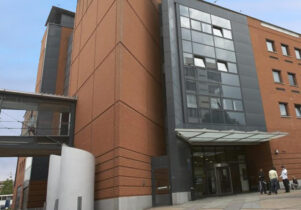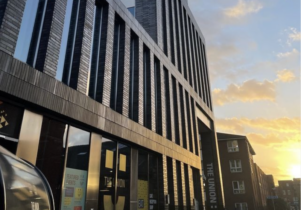The Silent Planet at RNCM
Johnny James, Managing EditorBook now
The Silent Planet
Always double check opening hours with the venue before making a special visit.

Promoting conversation around climate change while exploring what activism can look like, the RNCM hosts a captivating collaborative concert featuring Delia Stevens, Will Pound, players from the Royal Liverpool Philharmonic Orchestra, musicians from the RNCM, and activists from global climate NPO, Force of Nature.
Award-winning BBC Radio 3 Presenter, Delia Stevens and three-time BBC Radio 2 Folk Musician of the Year nominee, Will Pound, have spotted something missing from Gustav Holst’s iconic Planets suite. Viewing space from a human perspective, the British composer decided to leave out the “astrologically insignificant” matter of earth. But as the urgency of listening to our planet grows ever stronger, Stevens and Pound resolved that perhaps, given the circumstances, Holst might forgive them for adding an additional Earth movement to his masterwork, as part of their new double percussion and harmonica/melodeon concerto, Silent Planet Suite, re-imagined from Holst’s Planets.
Marking Holst’s 150th anniversary, this new work has seen Stevens and Pound go on quite the journey, one they’ve shared with Phoebe Hanson, an activist and educator from under-35s organisation Force of Nature. It started with the composers analysing Holst’s score and taking its motifs as starting points to generate ideas that had permission to take any direction, almost as a jazz musician would with a ‘standard’. Concurrently Hanson prepared four climate keynotes inspired by the subtitles Holst gave each movement of The Planets, including Bringer of Peace, Bringer of Jollity and The Winged Messenger.
In the performance, young climate activists from Force of Nature will give these keynote speeches, accompanied by semi-improvised soundscapes by Stevens and Pound with RNCM students. These speeches will sit in between the re-imagined movements — from Mars to Mercury, Venus to Jupiter, and finally, the brand new Earth movement — all of which have been orchestrated by Ian Gardiner, who’s arranged for everyone from Jarvis Cocker to the London Symphony Orchestra.
This is more than a night at the symphony. Giving our silent planet a voice while amplifying other unheard voices in conversations around climate change, the performance will redefine the role of the concert hall in activism, and leave audiences eager to continue such conversations far beyond it.
























































